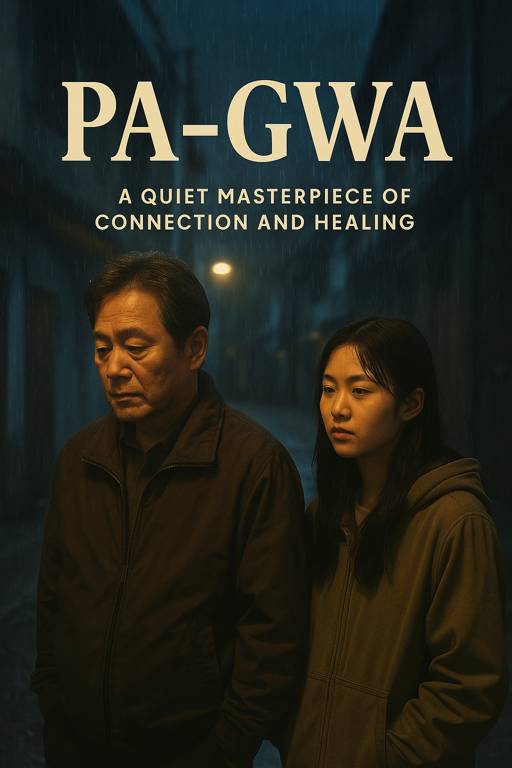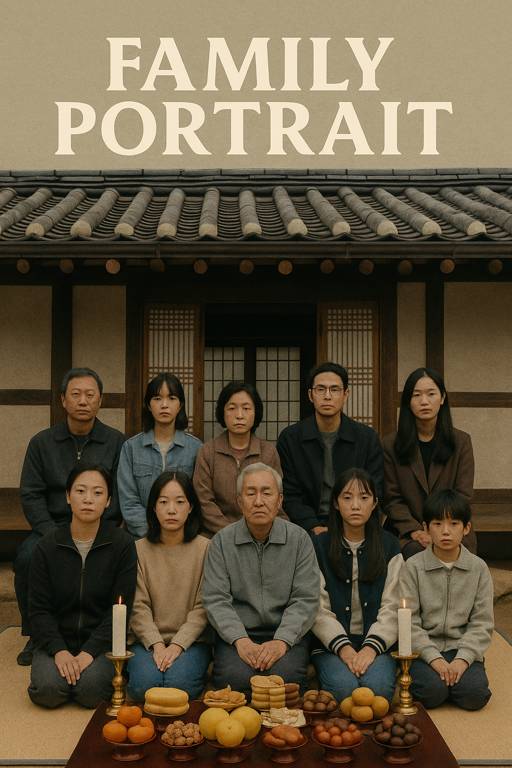Introduction: A Quietly Powerful Korean Thriller
Among Korea’s filmography of thrillers, The Killer Behind the Old Man stands out. It is better known by its Korean title, “파과 (Pagwa)”. The film is notable for its intimate scale. It is also noted for its emotional depth and psychological tension. The film was released in 2017. It was adapted from a novel by acclaimed writer Jeong You-jeong. This film doesn’t rely on high-speed chases. Nor does it rely on flashy editing. Instead, it tells a slow-burning story about violence, aging, and regret. The story is seen through the unlikely perspective of an elderly woman and a young killer.
Directed by Lee Joon-ik, Pagwa features a masterful performance by veteran actress Youn Yuh-jung. It challenges genre conventions. The movie becomes a rare, meditative thriller about morality and justice. It explores the thin line between revenge and redemption.
Plot Summary: When Past and Present Collide
The film follows Yoon Geum-ok, a retired female professional boxer in her seventies. She lives a quiet, solitary life in a small Korean town. Her days are uneventful — filled with old routines, aching joints, and memories of past glory. But her life takes a dark turn when a serial killer targeting young girls appears in the area.
By chance, she crosses paths with Jong-hoon. He seems quiet and polite. However, he harbors chilling secrets.
As Geum-ok begins to suspect him, a tense psychological game begins. Her instincts as a fighter — both physical and moral — are reawakened. What follows is not only a suspenseful confrontation. It is also a deep exploration of age, violence, and the irreversible consequences of choice.
Themes and Symbolism
1. Aging and Invisibility
Pagwa gives voice to a demographic rarely centered in Korean cinema — the elderly, and particularly elderly women. Geum-ok is not treated as fragile or pitiable; rather, her body and spirit are portrayed with dignity and complexity. Her pain, both physical and emotional, is shown as real but not defining.
The film explores how older people, especially women, are often ignored by society. This invisibility becomes both a burden and, paradoxically, a shield.
2. Trauma and Redemption
Geum-ok’s past was as a boxer. She was a woman who once knew how to fight. This history is symbolic of buried rage and resilience. Her decision to act — to confront evil — is not a desire for vengeance, but a quiet moral reckoning. The killer, too, is not merely a monster but a fractured human, shaped by circumstances and psychology.
The film does not simplify justice into good vs. evil, but explores moral gray zones, asking: Can someone who has committed evil still be saved? Can justice exist without violence?
3. The Body as Narrative
Unusually for a thriller, Pagwa pays detailed attention to the body as a vessel of memory. Geum-ok’s stiff joints, bruises, and slow movements are juxtaposed with her emotional sharpness and instinctive will. The fight scenes are not glamorous — they are awkward, heavy, and real. They tell the story of a life that refuses to give up.
Cinematic Style and Direction
Director Lee Joon-ik, known for his historical dramas like Dongju and The Throne, brings a restrained, poetic touch to Pagwa. The cinematography avoids stylization, instead favoring natural light, quiet camera movements, and minimal score.
The film’s slow pacing and character focus are deliberate. They invite the viewer not to be thrilled. Instead, they encourage viewers to sit with discomfort, to observe closely, and to reflect deeply.
Social Relevance and Feminist Undertones
While Pagwa is first and foremost a thriller, it is deeply social and political in subtext. It addresses:
- The marginalization of elderly women in Korean society
- Gendered violence and victimization
- The concept of female agency in a world that dismisses it
In many ways, it can be read as a feminist revenge narrative, but one that avoids spectacle. Instead, it offers dignity and quiet defiance — a refusal to be irrelevant, to be silent, or to be erased.
Why It’s Worth Watching
If you’re looking for a typical crime thriller with action sequences and fast pacing, Pagwa may not be your style. But if you seek:
- Psychological depth
- Unique female lead characters
- Poetic realism
- And a fresh take on justice and age,
then this film will linger with you long after the credits roll.
Where to Watch
- Korea: Available on domestic streaming platforms like Watcha, Wavve, or IPTV
- International: May be found via festival circuits, indie film distributors, or platforms like Film Movement, MUBI, or Asian film libraries
- English Subtitles: Available on select VOD services
Final Thoughts: A Film That Refuses to Be Forgotten
Pagwa is not loud, flashy, or commercial. But it is important. It asks difficult questions with grace. It centers a character — an aging woman — who rarely gets to be a hero. This is especially true in a thriller. In doing so, it redefines who gets to fight. It redefines who gets to matter. It also redefines what justice might look like in a world full of quiet pain.
For lovers of Korean cinema, literary adaptations, or socially conscious films, Pagwa is a haunting must-watch.



